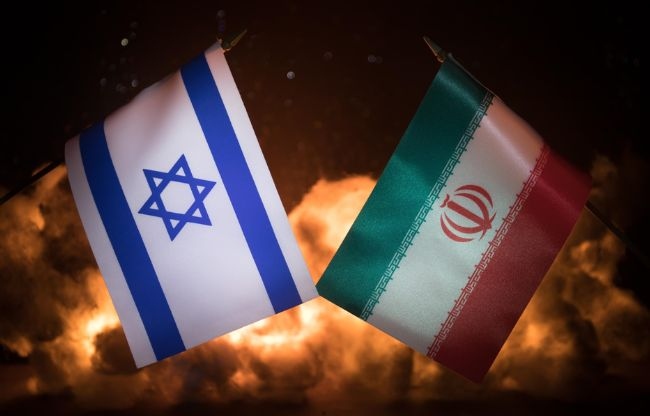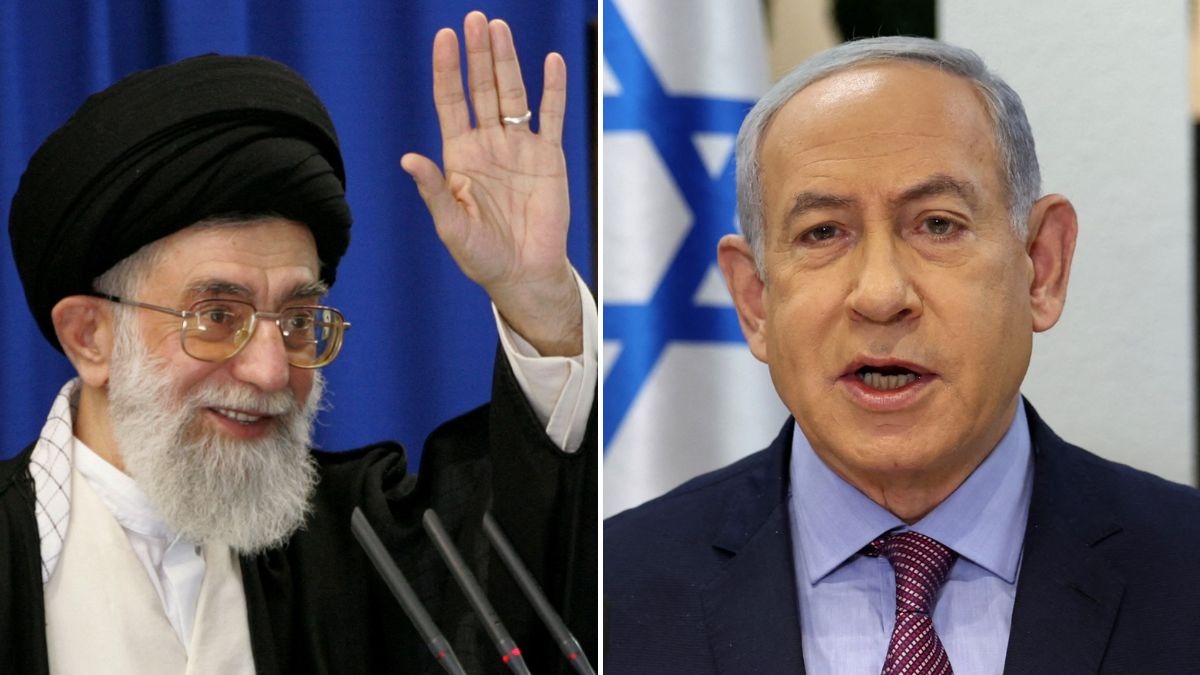In recent months, the Middle East has become a battleground. The conflict between Hamas and Israel has been ongoing for six months. Meanwhile, the threat of war between Iran and Israel is also escalating.
On the night of April 14, Iran attacked Israel with over 300 missiles and drones. Israel claims to have intercepted 99 percent of these attacks. Iran states its objectives have been achieved and there's no need for further assault. However, Israel insists it will retaliate against the Iranian aggression.
The attack was in response to an airstrike on the Iranian consulate in Damascus on April 1st, which resulted in the death of a top Iranian commander.
Regarding this assault, Israeli navy spokesperson Rear Admiral Daniel Haggari declared that their response will be on their own timing.
In the midst of this, the Israel-Iran tension now not only risks escalating regional conflict but also seems to be morphing into a Shia-Sunni showdown. Sunni-dominant Gulf nations are condemning Iran's actions and simultaneously aligning with America and Israel.
About Shia-Sunni in the Middle East
Estimates suggest there are over 1.5 billion Muslims worldwide, with roughly 20 percent residing in the Middle East and Gulf countries, predominantly of Sunni faith.
Countries like Egypt, Jordan, and Saudi Arabia have more than 90 percent Sunni populations. Iran is predominantly Shia, with about 90 to 95 percent Shia Muslims. Additionally, countries such as Iraq, Kuwait, Yemen, Lebanon, Qatar, and Syria have significant Shia populations. Iran attempts to maintain its influence in the Middle East by supporting Shia-dominant nations and extremist organizations within them.
The Shia-Sunni conflict is rooted in religious differences, although both groups follow the Quran and Sharia law. Despite this, a survey by Pew Research indicates that most Sunnis do not recognize Shias as true Muslims.
This conflict has persisted since Prophet Muhammad's death — with Shias favoring Hazrat Ali ibn Ali Talib and Sunnis recognizing Abu Bakr as their 'Caliph'.
Also read:
Could the Middle East Transform into a Shia-Sunni Conflict Zone?
About four decades ago, Iran had amiable relations with both Israel and the United States. However, the 1979 Islamic Revolution changed everything. Iran now regards the US as its greatest enemy and perceives Israel as a significant threat.
Iran allegedly wages proxy wars across the Middle East to ensure its dominance, particularly stirring trouble in Israel. While Iran denies direct involvement in these wars, it's clear their support for groups in Gaza, Lebanon, Yemen, Iraq, and Syria keeps the region on edge.
Saudi Arabia and the United Arab Emirates are sharing critical intelligence with the United States, responding to Iranian threats, creating the possibility of a new alliance under American leadership, according to the Wall Street Journal.
Experts believe the prolonged tension between Sunni-majority countries and Iran aims to curb Iran's influence in the Middle East.
Beyond Iran, other Middle Eastern countries have been softening their stance towards the US and Israel. For instance, diplomatic relations between the UAE and Israel were normalized four years ago. Simultaneously, talks to normalize relations between Saudi Arabia and Israel were underway until Hamas attacked on October 7.
Jordan and Israel have had normalized relations since 1994, with Jordan being the second Arab country to recognize Israel, after Egypt. So far, Sunni-majority nations in the Middle East are the only ones recognizing Israel or trying to normalize relations with it.
Nonetheless, tensions between Iran and Israel show no signs of abating. Israel is poised for retaliation, while Iran warns of grave consequences if Israel responds.

Source: aajtak
The Role of Iran in Fostering Shia-Sunni Strife
Following the Iranian assault on Israel, the probability of Shia-Sunni conflicts is rising in the Middle East.
Consider this: the Sunni-dominated United Arab Emirates, Jordan, and Saudi Arabia responded to the Shia-majority Iran's attacks. Subsequently, US President Joe Biden remarked that the 'alliance' prevented a war from unfolding.
The creation of a new alliance in the Middle East, led by America, is on the horizon, as revealed by the Wall Street Journal's report. The UAE and Saudi Arabia not only shared airspace-related intelligence with the United States but also disclosed Iran's plans.
If we exclude Iran from consideration, the Middle Eastern countries have typically held softer positions towards the United States and Israel. Israel's relationships with these nations, which have been normalizing or attempting to normalize, are all with Sunni-majority countries.

Source: aajtak
How Iran is Amplifying the Shia-Sunni Conflict
In the wake of the Iranian attacks on Israel, tensions between the Shia and Sunni communities are intensifying across the Middle East.
The situation is such that the Sunni-majority nations of Iran's attacks led to a response from Shia-majority countries like Saudi Arabia, Jordan, and the United Arab Emirates. Following these events, US President Joe Biden stated that an 'alliance' averted a war.
There is speculation of America spearheading a new alliance in the Middle East. The Wall Street Journal reports that both the UAE and Saudi Arabia have not only shared crucial intelligence on their airspace with the US but also information about Iranian strategies.
For decades, there has been tension between Sunni-majority countries in the Middle East and Iran. The objective behind curbing Iran's retaliatory attacks might have been to prevent it from consolidating power in the region.
It's also noteworthy that apart from Iran, many Middle Eastern nations have maintained a relatively soft position towards both America and Israel. UAE and Israel normalized diplomatic relations four years ago, while Saudi Arabia and Israel had been in talks for normalization before the recent Hamas assault on October 7.
Since 1994, Jordan and Israel have maintained normal relations, with Jordan being the second Arab country to recognize Israel after Egypt. To date, all the Middle Eastern countries that have recognized Israel or are in the process of normalizing relations are Sunni-majority.
Meanwhile, the tension between Iran and Israel shows no signs of diminishing. With Israel firm on its stance to retaliate and Iran threatening dire outcomes if attacked, the conflict's future remains uncertain.




